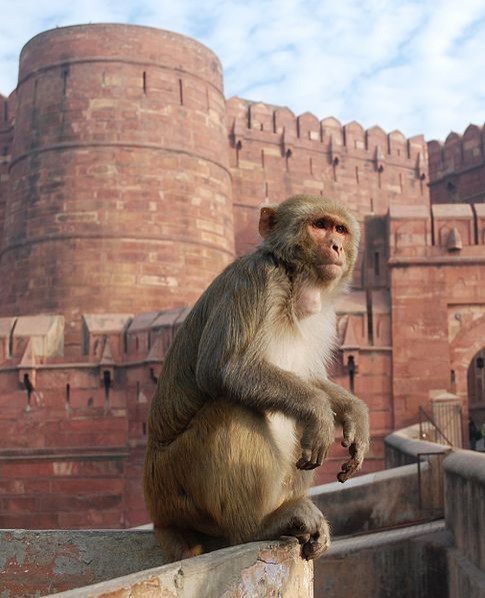Researchers Determine Prejudice Has Evolutionary Roots

Researchers recently discovered prejudice is a trait humans have retained from their evolutionary predecessors.
Yale researchers led by psychologist Laurie Santos determined that monkeys often treat individuals from outside their groups with same kind of xenophobia as their human cousins often do. Santos and her team studied the rhesus macaques, a type of monkey living on an island off the coast of Puerto Rico, and performed a series of tests to make these conclusions.
One of the more troubling aspects of human nature is that we evaluate people differently depending on whether they're a member of our 'ingroup' or 'outgroup,' Santos said. Pretty much every conflict in human history has involved people making distinctions on the basis of who is a member of their own race, religion, social class, and so on. The question we were interested in is: Where do these types of group distinctions come from?
Santos and her team studied the rhesus macaques' tendency to stare longer at novel or frightening things than at familiar or friendly things. Monkeys were shown pictures of monkeys in their social group and monkeys outside of it. The team found the monkeys stared longer at pictures of other monkeys who were outside their group, showing they knew who was a stranger and who wasn't.
What made this result even more remarkable is that monkeys in this population move around from group to group, so some of the monkeys who were 'outgroup' were previously 'ingroup.' And yet, the result holds just as strongly for monkeys who have transferred groups only weeks earlier, suggesting that these monkeys are sensitive to who is currently to be thought of as an insider or an outsider. In other words, although monkeys divide the world into 'us' versus 'them,' they do so in a way that is flexible and is updated in real time, Neha Mahajan, a Yale graduate student who worked on the project, said.
The researchers then attempted to see if the monkeys evaluated ingroup and outgroup members differently. To do this, they used a monkey version of the human test IAT, which measures the extent to which people show implicit biases against members of other groups.
To adapt this to monkeys, the researchers showed the monkeys photos in which an ingroup or outgroup monkey face was paired with photos of either good things, such as fruits, or bad things, such as spiders. They studied how long the monkey stared at these photos. If it was an ingroup and it was a good thing, the monkey didn't stare long. Conversely, if it was an outgroup member and it was a good thing, they continually stared because associating an outgroup member with something good is confusing (or at least requires some thinking through).
With this information, the researchers say it could likely mean human prejudice dates back several million years. Humans and rhesus macaques shared a common ancestor approximately 25 million years ago.
The bad news is that the tendency to dislike outgroup members appears to be evolutionarily quite old, and therefore may be less simple to eliminate than we'd like to think, Santos said. The good news, though, is that even monkeys seem to be flexible about who counts as a group member. If we humans can find ways to harness this evolved flexibility, it might allow us to become an even more tolerant species.
© Copyright IBTimes 2024. All rights reserved.





















